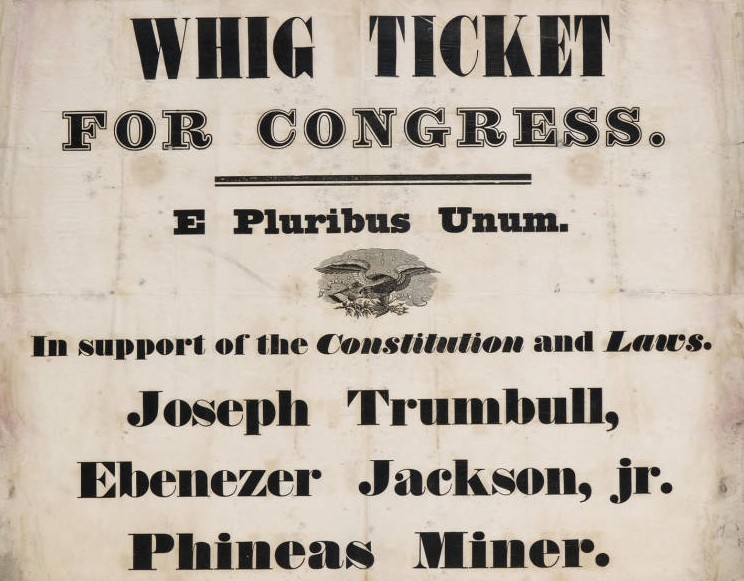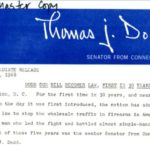
Connecticut’s Whig party candidates for Congress, 1834 – Connecticut Historical Society
The Fundamental Orders of 1639, the first written constitution in the American colonies, and the Charter of 1662 represent Connecticut’s earliest efforts to establish a representative form of government. Over the years, various political debates arose over such issues as slavery, temperance, religious influence on governance, women’s suffrage, and even where to locate the state capital. (Until 1875, Connecticut had one in Hartford and one in New Haven, with legislative meetings alternating between the two.) Notable figures include William A. Buckingham, one of only four Union governors to serve throughout the Civil War and remembered as Connecticut’s Lincoln for his anti-slavery stance, and Ella Grasso, the nation’s first elected woman governor.
Featured
Thomas J. Dodd and the Gun Control Act of 1968
In 1963, Thomas J. Dodd crafted Senate Bill 1975, a "Bill to Regulate the Interstate Shipment of Firearms." …[more]





